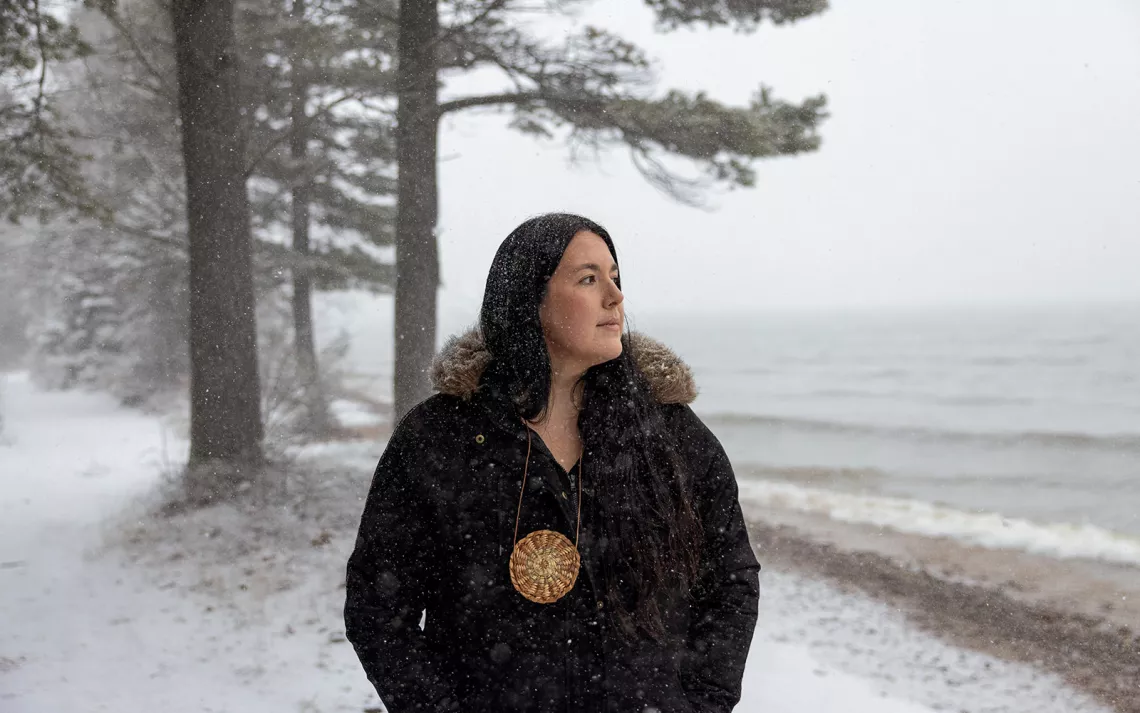Confessions of a Monkeywrencher
Leonard Higgins explains why we broke the law to protect the climate

Illustration by Maggie Chiang
Leonard Higgins was one of five people who, on October 11, 2016, shut down all five pipelines carrying tar sands crude oil from Canada into the United States. This is a condensed version of Higgins's testimony at his sentencing hearing in March. The judge ordered Higgins to pay $3,755.47 in restitution and sentenced him to three years' probation.
Your Honor,
I want to start by acknowledging that I trespassed on private property and tampered with property that is not my own. I acknowledge the damage to the three chains and the actuator plate and have arranged with my attorney to provide reimbursement in that amount. I respect this court and Your Honor's authority to sentence me to the appropriate consequences.
The facts of climate science, the tragic impacts already under way from climate change, and the failure of the government to respond with a timely and adequate response drove me to cross the line from being a state employee working for the people to consider[ing] nonviolent civil disobedience.
There is strong evidence that we may have already crossed unrecoverable tipping points in our climate systems, in our ecosystems, and in the sheer volume of carbon we've already poured into the atmosphere. Many scientists, experts, and knowledgeable people have given up hope of humanity being able to change course before it's too late. Many of them are focused on living the rest of their lives in the best way possible without further regard to future generations. I think they could be right that we are out of time, but there is too much that is precious in this life to give up without a fight. What are most precious to me are the lives of my children, grandchildren, family, and other loved ones.
Although the scientific findings about the impact of carbon emissions have been certain for over four decades, federal and state government executive and legislative branches have not only failed to act; they have pursued policies favoring the rights of commerce and profits of fossil fuel companies over individual constitutional rights to life and liberty.
Today, I am here in part because of my faith in the courts as a last resort to protect the constitutional rights of individuals and their communities. I have faith in the law and the pursuit of justice that is at the core of the judicial branch of our government. There are many instances in our history where what has been legal is not what was right and just. I say all of this not to seek leniency in my sentence, but with the hope that the courts may take a greater role in protecting our individual rights from the immediate harms we face, and the rights of our children and grandchildren to a livable future.
There are two things that give me hope for our future. One is that, despite the certainty of the threat we are facing, we can't know for sure how things will play out over the next couple of decades. The other is admiration for humanity. Again and again, I've seen examples of how communities pull together in the face of adversity. Most often, communities will reach out to protect and support the most vulnerable. My hope is that more and more of us, including this court, will see and feel the emergency and pull together to demand immediate changes to reduce our carbon emissions and the other responses needed to avoid the worst.
I appreciate the chance to explain the intent for my actions more fully than allowed in my trial. I hope your honor will consider my good character and positive contribution to community through family, church, and public service described in my sentencing memorandum.
Editor's note: The Sierra Club does not sanction civil disobedience involving property destruction, and our publication of this courtroom statement is not meant as an endorsement of Higgins's actions.
 The Magazine of The Sierra Club
The Magazine of The Sierra Club



